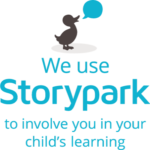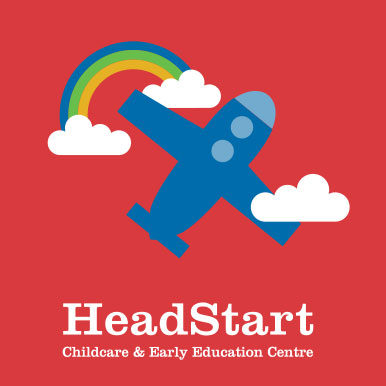Learning at Headstart Childcare
We believe in and value each child in our care
HeadStart provides a learning space with emphasis placed on children learning holistically. Our learning is aimed at enriching our children’s lives with opportunities to explore, discover and play, underpinned by encouragement to think deeply about the world around them and their place in it.
Communication
Communication and oral language skills enable children to both comprehend and use language to understand and organise their world. They give children the means to communicate and express themselves, to think, plan, develop ideas and problem-solve, and to conceptualise and access knowledge, as well as understand social situations and emotions. Infants, toddlers and young children develop their vocabulary, sentence length, speech patterns and even the duration of their conversations based on what they have heard from their parents, teachers and peers. Children who have been exposed to a greater quantity and quality of language and communication often have larger vocabularies and better speech development at age three than children with less language experience. Cognitive development, social skills, literacy achievement and academic skills are also related to children’s language experience and communicative skills. Reference
Art
The visual arts encompass an extensive range of visual modes that children utilise for expressing, communicating, mediating their thinking, and engaging in aesthetic exploration and research. Some common examples include painting, clay work, collage, weaving, construction and photography, although there are many more modes of visual expression and exploration.
The visual arts support children’s learning in a number of ways by facilitating their ability to communicate, helping them to mediate their thinking, and promoting their creativity and imagination. The visual arts help children to develop an appreciation for diverse points of view and build their cultural knowledge. They also can offer emotional support to children, particularly in relation to transitions from home to the early childhood setting. Children also learn about the symbolic systems of representation and communication valued by their communities through the visual arts. Reference
Literacy
Literacy can be defined as the ability to identify, understand, interpret, create, communicate and compute using printed and written materials associated with varying contexts. The development of literacy, often referred to as early or emergent literacy, begins from birth, well before children formally learn to read, write or talk. Teachers can provide a range of experiences that support children’s developing literacy skills and their progression towards valued learning outcomes in the early childhood setting, as well as helping to prepare them to start school. Early literacy understandings children need to develop include: strong oral language; alphabetic knowledge; phonological awareness (being aware of sounds in words); the ability to rapidly name letters, numbers, objects, and colours; the ability to write their own name; the ability to remember spoken information for a short period of time; the ability to match and discriminate visual symbols; and an understanding of print conventions and concepts. Reference
Mathematical thinking
From a very young age, children can show an interest and engage in foundational mathematical thinking. This includes numeracy skills such as relative magnitude and basic arithmetical understanding, spatial skills such as an interest in building and shapes, and pattern skills such as recognising and extending sequences.
Supporting children to explore and develop their understanding of foundational maths skills involving numeracy, patterns and spatial understanding can facilitate their ongoing learning in maths. Numeral knowledge, which links children’s knowledge of quantities with their symbolic representations and tends to develop as children approach the age of five, is also predictive of children’s success in mathematics in early to late primary school. Reference
Social and Emotional Competence
Being able to regulate emotion, engage in positive interactions with others, and manage one’s own behaviour and actions are crucial skills that impact on children’s learning success. Research finds the early childhood period critical for helping children to develop social and emotional competencies.
Social and emotional competence is multi-faceted and includes a range of skills and knowledge such as knowledge of emotions, emotional regulation, social skills, self-management and responsible decision-making which enable children to interact effectively with others and achieve positive outcomes. Social and emotional competence is linked to significant long-term health and social outcomes such as improved school achievement, relationships, quality of life, wellbeing and happiness, and higher rates of employment. Reference
Outdoor Spaces
The unique characteristics and stimuli of the outdoor environment provide a wealth of opportunities for play involving open-ended interactions, spontaneity, exploration, discovery, risk-taking, and imagination. Outdoor spaces also allow children to connect with, learn about and start to take responsibility for nature and the environment. Spending time outdoors provides a wide range of play opportunities that cannot be replicated indoors, particularly for risky play, as well as an authentic context for children to learn about the world and their place within it. In outdoor settings, children generally move more, sit less and engage in play for more sustained periods. Green spaces also have positive effects on the physical and mental health of both children and adults. Contact with nature is associated with self-regulation, and physical activity in natural settings greatly improves self-esteem and positive emotions and behaviours. Reference
Movement
Learning to move is complex and effortful. Early movement requires the coordination of sensory tools like sight and touch, reflexes such as spatial awareness, and motor skills like coordination and control. The interrelationship between body and brain as a child learns to move is essential for development and learning. Movement is vital to learning because if facilitates the development of essential connections in the brain. Movement and language are the essential foundations of children’s learning. Reference
Working Theories
Working theories are a way in which children make sense of their world and integrate new knowledge accumulated from their personal and social experiences into their existing understanding of the world. Working theories involve children in abstracting information from their experiences and observations, and connecting it with their existing knowledge in meaningful ways.
Working theories are defined as provisional (subject to change), functional (supporting children’s understanding and action), situated (stimulated and created within children’s relationships, contexts and experiences) and created and owned by children. Working theories engage children’s thinking and meaning-making, and support individual knowledge construction and early academic learning. Working theories may assist children in moving from everyday concepts to more formal scientific concepts, while a focus on supporting and developing children’s thinking and working theories is likely to provide cognitively challenging programmes for children. Keeping track of the working theories that children develop around their identity as learners and their learning processes may be important as these theories are likely to mediate children’s learning and participation. Reference
Science
Children are born scientists – they are innately curious about the physical environment and naturally open to making meaning through their exploration and conversations with others. Science teaching and learning has a place in all early learning services.
Science teaching and learning is about introducing children to the ways scientists think about and investigate the physical environment. Scientists do this in two ways.
- They explore and confirm ideas about the physical environment we live in through investigation and exploration.
- They form hypotheses or “working theories” to make sense of the physical environment and identify these as science knowledge.
Science has traditionally been separated into five disciplines:
- Living world (biology) – for example, plants and animals
- Physical world (physics) – for example, forces, light, and sound
- Material world (chemistry) – for example, melting and dissolving
- Planet earth (geology) – for example, rocks and soil
- And beyond (astronomy) – for example, planets and stars
Each discipline has specific ways of exploring and investigating the physical environment.
Alongside this “western” framework of science sits a Te Ao Māori world view. An example of a difference between the two is that from a Te Ao Māori perspective, water and planet earth (papatūānuku) are living entities, while for western science they are objects and substance with no life force.
In Aotearoa New Zealand, there is a growing interest, appreciation, and integration of mātauranga Māori (traditional knowledge) in our understanding of the world. A rich curriculum for science is one that acknowledges, respects, and draws on the similarities and differences between both world views. Reference
Parent & whānau relationships
Parent partnership involves teachers in developing genuinely responsive and reciprocal relationships with families in which teachers and families collaborate in making curriculum decisions about children’s learning. Parent partnership in early childhood education can support a healthy developmental trajectory for a child that continues into the schooling period. Parental participation in early childhood education is related to children’s increased achievement, self-esteem, motivation, and wellbeing. Parental participation can decrease the achievement gap between high and low income families, and is associated with the support and maintenance of children’s culture and languages.
Strong parent partnerships enable teachers to develop knowledge of children’s home experiences to support higher quality learning interactions in the setting, and families to develop skills and confidence for enhancing their children’s learning at home. This enables greater continuity between home and the early childhood setting. This is important because discontinuity has a negative effect on children’s development, particularly their behaviour, social competence, language and motor skills. Reference
Educational Software we use – Storypark
Storypark gives you the tools you need to nurture strong connections both within your team and with families. A simple yet powerful platform to support high quality practice and strengthen outcomes for children.
Results from an independent survey conducted by Goodstart Early Learning
Within 3 months of using Storypark…
– 90% of families said they now have a stronger understanding of their child’s development.
– 84% of teachers said Storypark had saved them time.
– 98% of teachers said Storypark had improved family engagement.

Culturally diverse
Culturally responsive pedagogy involves teachers adapting and transforming their practice as a result of a deep engagement with and understanding of children’s and families’ diverse cultures. Culturally responsive pedagogy affirms, values and draws from children’s cultures, and actively supports and maintains children’s cultural identities and practices. Reference
Our local community
Part of our philosophy is to provide all of our children with a sense of community. We do this through celebrations of various cultural events that are relevant to our children and their families. Regular celebrations include Chinese New Year, Matariki, Easter, St Patrick’s Day, Halloween and of course, Christmas. We welcome all new cultures and cultural celebrations.
We also encourage a sense of community by taking short excursions into the community. The most prized of all are our visits to the local rest home. This jaunt has a profound effect on the children and adults alike, both of which learn something.
Transition to School
We have established relationships and in consultation with the local schools with have developed a comprehensive Transition to school programme for our 4 year old children to engage in each day. This programme focuses on the foundation skills children need before they start school to ensure a successful transition.
Charities we support
Lions Club Remuera
Burn Support
Auckland Regional Helicopter
Fostering Kids
Heart Kids
Kids Big Day out
Rotary Club of Newmarket
Radio Lollipop
Autism NZ
Koru Care
The Kids Foundation
NZ Down Syndrome Association
Burn Support
Alzheimer’s NZ
Caring Families
Kidney Kids
World Vision
Special Children’s Party
Loud Shirt Day
Daffodil Day
Cure Kids

Headstart Childcare and Education Centre is proud to be locally owned and operated, HeadStart is an important part of the Hobsonville community, helping grow the hearts and minds of children for over 25 years.
Centre info and opening hours
- 7:30am - 6:00pm
- 09 416 4300
- 193 Hobsonville Road, Hobsonvlle, Auckland, 0618
Contact us
- Copyright Headstart Childcare 2023
